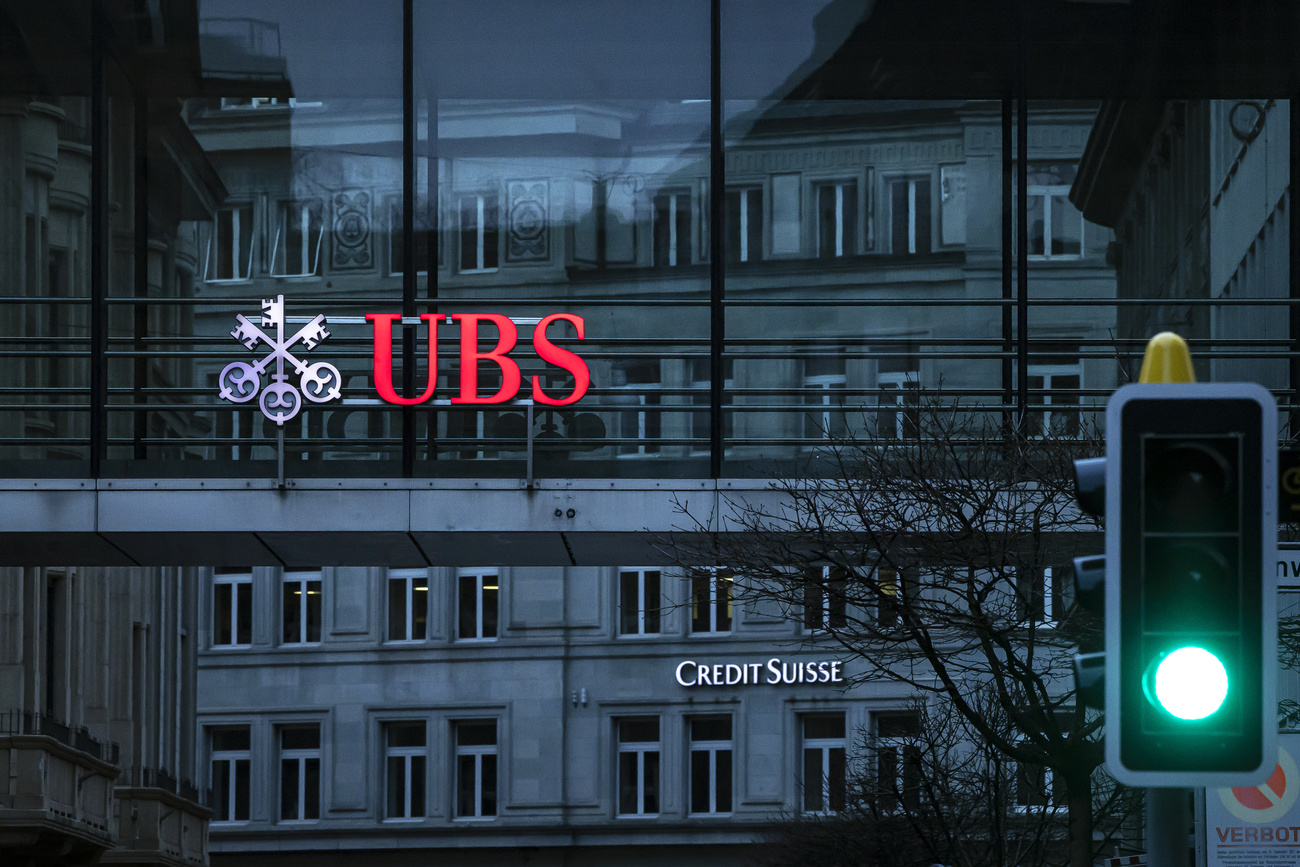What it takes to fuse two Swiss banking giants

On paper, UBS got a great deal when it bought rival Credit Suisse for a bargain CHF3 billion ($3.25 billion). But the real price tag will only be known on completion of the bank fusion, carried out in a minefield of legal, regulatory and market risks.
“I cannot emphasise enough how big this deal is in terms of financial history and financial engineering. That brings with it significant execution risk,” said UBS chair Colm Kelleher.
The rewards for getting the fusion right could be enormous. But the price for failure would be catastrophic, not just for Switzerland but the entire global financial sector.
The risks
UBS has identified several potential pain points: fitting together two operational systems, detoxifying Credit Suisse’s misfiring investment bank and integrating staff and business cultures.
+ Why a monster UBS bank scares Switzerland
“There are clearly parts of Credit Suisse that have had a bad culture,” said Kelleher. “We will have to put everyone through a culture filter to make sure we don’t import something into our ecosystem that causes issues.”
There are also limits to how much UBS can learn about Credit Suisse’s balance sheet before the merger.
“As long as we are not merged, we cannot get access to all the information. We must be really careful about anti-trust regulation,” says UBS CEO Ralph Hamers (who is to be replaced by Sergio Ermotti on April 5).
And then there is the question of how much UBS can get for unwanted Credit Suisse investments in a market reeling from bank collapses and rising interest rates.
There are many things to consider on a basic operational level, according to former UBS executive Andreas Ita, now managing partner of the Orbit36 risk consultancy.
“The two firms operate on different IT systems. The integration in this area will likely take years rather than quarters,” he told SWI swissinfo.ch.
“UBS will also inherit Credit Suisse’s various pending legal cases,” he added. This includes potential lawsuits from holders of so-called AT1 bonds that were wiped out by the takeover.
UBS also has the job of placating the Saudi National Bank, Credit Suisse’s biggest shareholder, that invested billions into the bank last year only to see most of it evaporate under the terms of the UBS takeover deal.
The politics
Like it or not, UBS has now been dragged into a brewing political storm in Switzerland.
The government enacted emergency powers to force through the takeover, shouldering aside shareholders and bondholders. Billions in taxpayer funds have been promised to cover potential UBS losses.
+ The global impact of Credit Suisse’s demise
The government has ordered a freeze on Credit Suisse bonus payments. Parliament will hold an extraordinary session to debate the matter, while several committees have promised to investigate aspects of the banking emergency.
Many politicians are demanding that Credit Suisse’s domestic retail banking operation be spun-off into an independent entity. This could put politics on a collision course with the bank because UBS says it has no plans to break up Credit Suisse.
Job cuts are inevitable among the 16,000 staff Credit Suisse employs in Switzerland. UBS cannot say at present how many of these posts will have to go, but the bank will be under pressure to save as many as possible.
What happens next?
Major financial centres, such as the United States, the UK, and the European Union, have given their general blessing to the deal after the intervention of the Swiss authorities.
Lawyers are now haggling over the finer details with regulators and anti-trust authorities in the 58 countries in which UBS operates.
+ Where did it all go wrong for Credit Suisse?
UBS says it will take some weeks before it can present its concrete takeover plan to the public. The Swiss government wants the deal finalised by the end of the year.
The Financial Times reports that UBS is already trying to untangle Credit Suisse’s highly complex deal to partially spin off its investment banking business.
Can the takeover succeed?
Both Swiss banks have history of absorbing peers. In 1988, Credit Suisse bought up the US investment bank First Boston. Ten years later, UBS was created by the merger of the Union Bank of Switzerland with the Swiss Bank Corporation.
But this was before the terms ‘Too Big to Fail’ and ‘Global Systemically Important Bank’ (GSIB) were even coined during the 2007-8 financial crisis.
“This is the biggest single financial transaction since 2008,” says Kelleher. “I would argue that it is bigger than any deal done in 2008 because it is the first time that two GSIBs have merged.”
UBS says the Credit Suisse takeover will give it more firepower in the global markets, particularly the US, southeast Asia, and Latin America. But executives also acknowledge there are potential banana skins.
If the fusion succeeds, the mega-bank will still need to function efficiently and make profits.
And it’s impossible to gauge how successful the new entity could be before more details are known on its final composition and strategy.
More

In compliance with the JTI standards
More: SWI swissinfo.ch certified by the Journalism Trust Initiative
















You can find an overview of ongoing debates with our journalists here . Please join us!
If you want to start a conversation about a topic raised in this article or want to report factual errors, email us at english@swissinfo.ch.